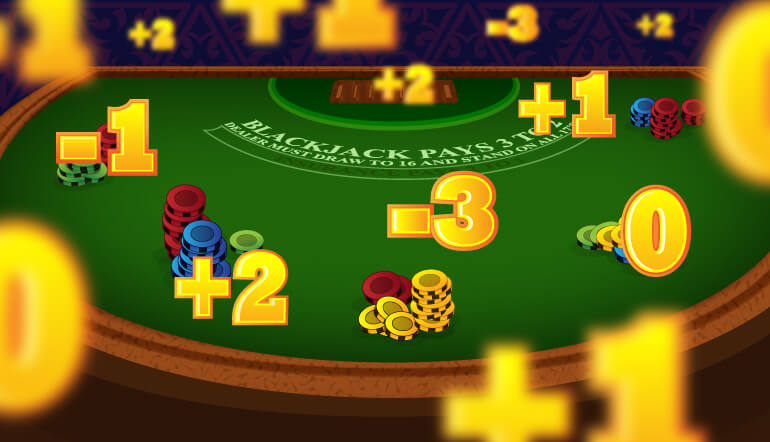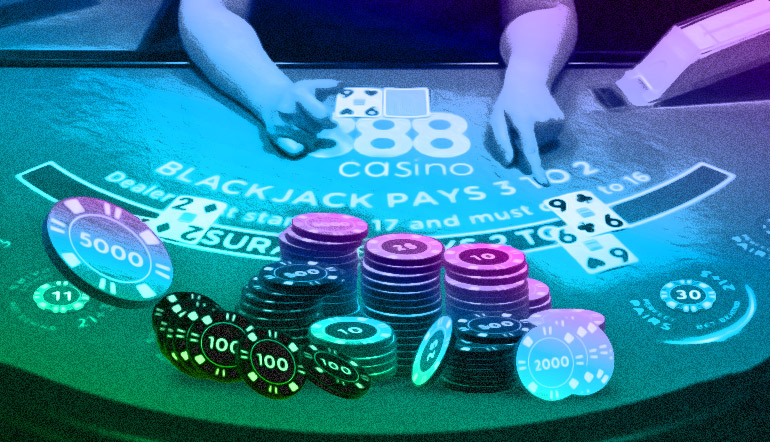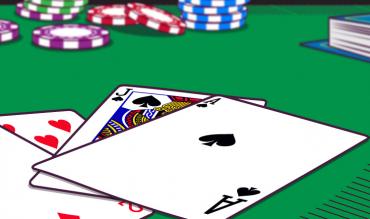This guide serves as a roundup of the best expert blackjack strategy advice from expert contributors on the site. These nine expert blackjack tips are derived from common wisdom taken from the most knowledgeable players in the industry, and with them under your belt, you will have the knowledge to apply strategy to each hand you play.
Table of Contents
- Learn How to Play Any Hand
- Unless You’re Card Counting, Stick to a Flat Bet
- Taking Insurance Is a Bad Bet
- Only Play Games That Offer a 3-2 Payout
- Don’t Be Afraid to Surrender
- Perfect the Art of Doubling Down
- Understand Splitting Strategy
- Counter the House Edge with Advantage Play
- Learn How to Manage Your Money
- Wrapping Up
1. Learn How to Play Any Hand
The first thing to do for those who want to play blackjack like a pro is to master basic blackjack strategy, like the basic rules, variations, casino edge, and etiquette of the game. With this knowledge, you’ll be set to play your best no matter what cards you are dealt.
Frank Scoblete, author of the Ultimate Roulette Strategy Guide and a highly regarded casino specialist, agrees that “There is a reason why mankind invented the computer. We needed to find out the optimal way to play blackjack so that we kept the house edge seriously at bay. The optimal way is called basic blackjack strategy.”
There is a statistical advantage to employing basic strategy — it provides you with skills to double your bet in favorable situations, split when the dealer can’t, stand on totals of 12-16, and capitalize on a bonus payoff where the deal can’t.
Henry Tamburin Ph.D. is one of the most respected blackjack experts in the world, and author of the Ultimate Blackjack Strategy Guide, Blackjack: Take The Money and Run, as well as a litany of other magazine pieces. He has made his name teaching blackjack, participating in tournaments like the prestigious Blackjack Ball.
Tamburin advises players that “You can reduce the casinos’ edge in blackjack to about 0.2–0.5% (rule dependent) by knowing the correct playing decisions.”
While there are plenty of deviations to basic blackjack strategy, it’s wise to hold a firm understanding of the basics before moving on to advanced strategies.
2. Unless You’re Card Counting, Stick to a Flat Bet
If you peruse the internet, you might read mention of common bidding strategies like the Martingale. This is a go-to for beginners, but unfortunately, it does not work.
A core principle of these progressive betting strategies is that at some point, a player is “due a win.” This is a common misconception.
Among the many problems with the Martingale system and similar progressive systems is that the longer you play, the more likely you are to have a bankruptcy losing streak. Statistically, the math shows a 0.001% chance of losing a 50/50 bet more than nine times in a row, which means that once out of every 1,000 wager sequences you place, you run that risk.
Constraints of betting limits restrict your bankroll and, in doing so, ensure that systems like the Martingale system are not statistically beneficial to you.
Tamburin encourages players who stick with progressive strategies thusly, “If you still insist on using a progressive betting system, I suggest the very conservative ‘Oscar’s Grind.’”
The Oscar Grind system begins with a single betting unit. You might bet, for example, $1 out of your $100 bankroll. If you win, then you start increasing the size of your bet by one unit until you make a profit of one unit. If you lose a hand, then you stay with your one unit bet until you win, after which you subsequently increase the size of your back by one unit until you make a profit.
This system is advantageous because it allows players to withstand longer losses without liquidating their entire bankroll and provides a higher likelihood of achieving small profits.

3. Taking Insurance Is a Bad Bet
Insurance — it seems like a good thing, whether for your home, car, or family, but it is nothing short of a statistically poor bet for basic strategy players when it comes to blackjack.
Tamburin reminds players that “Taking insurance (or even money, when you have a blackjack) is a bad bet, so never make it.”
Some players might swear by taking insurance, but the math doesn't. Insurance bets, no matter their form, have a negative expected value mathematically. This negative expected value means the more you make an insurance bet, the more money you may lose long-term.
This does not apply to card counters. However, taking insurance can sometimes tip off a pit boss, so it should be used cautiously.
Card counters typically only take insurance when the count is positive, indicating a greater chance that the dealer may have a 10 downcard and a blackjack. This pattern of play is sometimes an indication of card counting, sure to upset a pit boss monitoring your every move.
4. Only Play Games That Offer a 3-2 Payout
Players should avoid tables with 6-5 payout rules. Always.
Casinos that reduce the payouts from the standard 3:2 ratio to a doubled 6:5 payout add 1.39% to the house edge. John Grochowski, ranked as one of the most prolific gambling experts, providing weekly casino columns for almost 20 years and other casino publications, concurs and reminds players that “[A 6-5 payoff] raises the house edge against a blackjack basic strategy player by about 1.4%.”
In a regular game of blackjack, the payout is 3:2. So, if you bet $10 and you get blackjack, you get paid $15. It's easy enough to think as a newcomer that a page out of 6:5 will somehow double that amount, but it doesn't. Under a 6:5 table, if you bet $10 and you get blackjack, you only walk away with $12 in winnings.
This is typically implemented to discourage card counters, but it also raises the house edge against basic strategy players. So just stick with games that offer a 3:2 payout.
5. Don’t Be Afraid to Surrender
Players look at their two-card hands and compare against the dealer. If they know the chances of winning are poor, they still often avoid the surrender and stay in the game. Why?
Tamburin explains that “Most players disdain the surrender option because they much prefer to try to ‘win their hands,’ rather than wimp out and surrender them… Surrender can be a smart play if you know which hands to surrender.”
So, players should know when to surrender in blackjack.
There are two scenarios in which surrender is a smart play:
- Surrender a hard 16 (but not 8-8) against a dealer nine, 10, or Ace upward.
- Surrender a hard 15 to a dealer 10 upcard
Why?
Each time you surrender, you lose 50% or half of what you wager. So, in these cases, the math says you should choose to surrender in the two scenarios where your expected loss from staying in the game through to the conclusion is more than 50%.
6. Perfect the Art of Doubling Down
Doubling down is a basic blackjack strategy where you make a second bet equal to your first bet. The dealer then gives you an additional card. Basic strategy tables indicate that if you have a situation where you can't bust, where you have an ace.
Experts agree that specific situations and hands wherein the math behind doubling down are advantageous and similar situations where it is not.
Grochowski notes that “Every double down listed on the basic strategy table is an opportunity to enhance our profits, but the opportunities with hard 11 and 10 against weak dealer cards are much greater than the rest.”
These sentiments are shared by blackjack expert Tamburin who explains that “The logic for doubling on soft hands isn’t always clear to players, so they often pass up the opportunity. The reason you double on soft hands is not so much to outdraw the dealer as it is to get more money on the table when the dealer is vulnerable to busting.”
It is important to debunk the myth of “doubling for less.” Tamburin advises that “Doubling for less is not a smart play, and any dealer who offers this advice to players needs to read a good book on blackjack.”
Most players, newcomers or advanced, don't know that they can double for less, but that doesn't really matter when you consider that doubling for less is not a smart play.
- If you were to place a total bet of $100 and hit, your expectation could be $1,200.
- If you decided to double with a total bet now of $200, your expectation could be upwards of $1,600.
- If you opt to double for less, putting down only $125, your expectation is only $1,000.
The math simply doesn’t favor doubling for less.
7. Understand Splitting Strategy
In blackjack, you can split cards, but you should only do it under a careful strategy.
Tamburin agrees and explains that “There are three reasons why it makes sense to split rather than to employ an alternate strategy.”
Strategically Splitting
You should always split when:
- You will win more money on average (bold strategy).
- You will lose less money on average (defensive strategy).
- You will turn a losing hand into a winning one (offensive strategy).
10 Splitting Strategy
Then there is the 10 splitting strategy, referring to when you should split a 10 card in blackjack.
In blackjack, a 10 value card can be a 10, J, Q, or K. When dealt a pair of 10’s, there are only two ways to play. If you stand with a pair of 10’s, you have 20. But if you split, you are now playing with two hands, each starting with a value of 10.
Two types of players will utilize the 10 splitting strategy:
- Those who have no idea what they are doing and
- Those who have good blackjack strategies under their belts

Inexperienced players may split their 10’s when they see the dealer has a low card. Typically, this is because they believe that a single low card by the dealer means splitting their 10’s brings a statistically higher chance of winning, but an analysis shows this is far from the truth.
Those who have a good blackjack strategy under their belt split when there is an excess of 10’s in the unplayed cards. This means you are statistically more likely to draw one later in the game, or those who use the High-Low Count System concurrently and have already decided that the true count of the desk is +5 or more.
8. Counter the House Edge with Advantage Play
Common misconceptions about card counting start with the Hollywood-inspired notion that you must be a genius to do it and memorize every card as you play, and in so doing, you can win at every hand.
Far from the truth, strategic players willing to use popular, basic card counting methods can counter a house edge. Tamburin explains that “Playing ‘virtually even’ won’t get you the money at the end of the day; only card counting will do that.”
High-Low Count System
Keep your card counting methods simple. Start with the High-Low Count System. This system assigns a value of +1 to each low card, called a “tag.”
- This includes 1, 2, 3, 4, 5, 6
Concurrently it assigns a -1 value to each high card.
- These include 10, J, Q, K, and A
7, 8, or 9 cards are given a tag of 0 or neutral.
Beginners have to practice quickly recognizing the tags for every card. Practice at home shuffling cards, turning them over one at a time and saying aloud whether the tag is +1, 0, or -1. Don’t worry about the rank, just the tag, until such time as you have it memorized.
The goal here is to keep track of the cards on the table with their tags and the summation of each card in the pair.
Hole Carding and Front Loading
Some pros prefer other advantage play strategies over card-counting methods like Hole Carding and Front Loading. Hole carding and front loading are two methods that allow you to adjust your strategy based on identifying what the dealer's hole card is or what the next card will be, respectively.
Additional Advantage Plays
Still, others prefer additional advantage plays. These include the Ace location technique, where you can memorize two key cards prior to an ace popping up.
Alternatively, you can try your hands at next carding, where you know the next card to be dealt and, based on that information, can strategically choose to hit, stand, or double. Similarly, players participating in international games can use side bets.
9. Learn How to Manage Your Money
Learn the best practices for money management, including calculating the Risk of Ruin (ROR). This comes down to having a winning system and the necessary bankroll to support it. This should be a large bankroll but small bets.
Don’t over bet whatever you do. Tamburin states, “As a general rule, successful card counters maintain enough bankroll, so their ROR [Risk of Ruin] is 5% (or less).”
Strict money management means limiting losses, or at least the emotional fatigue they can bring. For this, integrate the 401G strategy: instead of a 401(k) for retirement, when you play, set aside your playing bankroll just for blackjack (your 401 (G) for ‘gambling’). Withdraw money from that 401G when you play and deposit all that remains after.
Casino expert Frank Scoblete explains, “Now I think a five hundred to one distance between a single bet and a total bankroll is not far-fetched and is reachable by just about anyone interested in being a ‘safe’ gambler. A five-dollar player just needs $2,500 to get in the game.”
Players can also minimize losses through comps and rebates. Casinos give you comps based on your perceived worth.
- They calculate this by the number of hands you play, the amount of money you bet per hand, and how many hours you play. This determines how much your action is expected to win.
- Then they calculate your action multiplied by the casino advantage. This determines your theoretical losses.
Together this determines what percentage of rebate or comps you get. If you are a skillful and strategic player, you can receive more money and casino comps than your theoretical loss from playing.
Wrapping Up
Common wisdom from top blackjack experts boiled down to knowing basic strategy inside and out and from there, constructing building blocks of additional, more advanced strategy to the foundation you have laid.
There are many misconceptions regarding the game of blackjack, typically fueled by emotions. Some players who don't want to surrender their hand even though the math tells them they should hesitate because of emotion. Or others who are afraid to hit on a soft 17 similarly hesitate because of emotion.
Blackjack is ultimately a mathematical game. With it, players should employ objective, statistically correct decisions that are not influenced by emotions.


